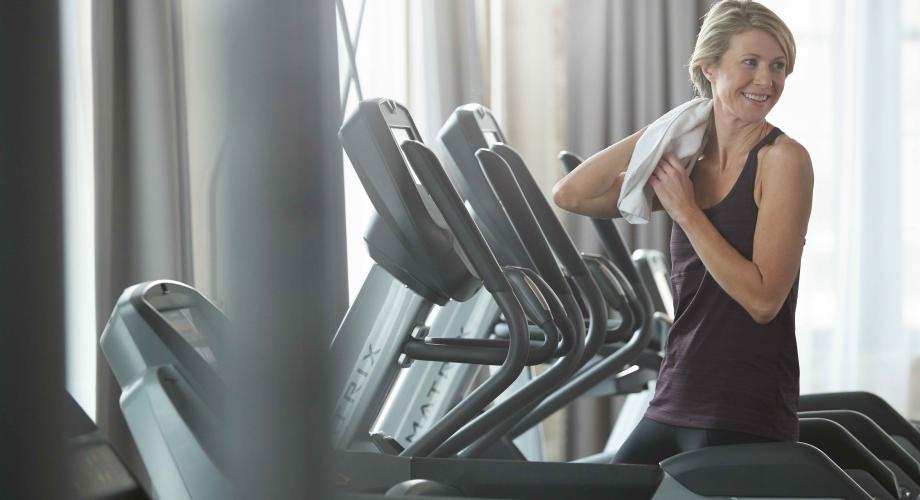Brought to you by:
Importance of Health and Wellness Amenities
Down to its core, movement is a brain function. Strengthening your physical health with regular exercise boosts mental resilience. By raising confidence and self-efficacy, regular exercise induces positive mood states while alleviating symptoms of anxiety and depression.
Studies show that a single short exercise session significantly improves your mood. Same-day advantages resulting from a bout of exercise include positive attitude, patience, lower stress, better attention, memory and sleep.
Recent studies support that the COVID-19 response requires an emphasis on physical activity, stating that regular exercise improves immune system function and helps individuals achieve better antibody responses to vaccination.
Developing On-Site and Virtual Hybrid Fitness Offerings
If your fitness center has reopened and residents are comfortable attending, continue evaluating your space, taking the necessary safety precautions and following your equipment suppliers’ cleaning and disinfecting guidelines. However, don’t let the closure or limited capacity of your amenity spaces – or residents’ fears of rejoining communal spaces – hinder your delivery of these wellness benefits. Activate the digital capabilities of your fitness amenity to engage with residents, giving them access to your fitness offerings regardless of location.
How We Can Help
How and where people get fit has changed, and that’s why there’s no better time than now for Connected Solutions. In observing the developing need for in-person and digital hybridity, we’ve committed to actively revamping our robust digital portfolio to align with the exerciser’s new relationship with their on-site and virtual fitness offerings.
Connected Solutions can help you create experiences that engage all of your unique residents in exciting ways. Learn more
Research gathered by Dr. Karlie Intlekofer, Global Wellness Researcher at Matrix Fitness.
References
